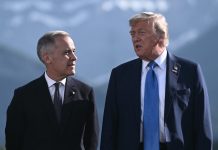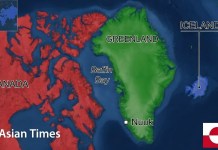Pakstan Foreign Minister Shah Mahmood Qureshi met with US Secretary of State Mike Pompeo in Washington and discussed the ongoing communication clampdown in Jammu and Kashmir.
Indian Media Wakes-Up After 30 Years To Cover Kashmiri Pandit Genocide
Qureshi told Pompeo about the ongoing human rights violations in Jammu and Kashmir, highlighting that over eight million people have been detained in the region with no access to internet for the past five months, a Foreign Office statement said.
Qureshi noted that a communications blackout in the valley remains in place in order “to conceal the facts from the world’s view”. “The dream of a ‘peaceful South Asia’ of the US and Pakistan cannot be realised until the Kashmir dispute is resolved in accordance with United Nations resolutions and through a plebiscite of eight million Kashmiris,” the FO quoted Qureshi as saying.
Kashmiri Muslims Responsible for Exodus of Pandits; Not Jagmohan: Top Kashmiri Journalist
Meanwhile, New Delhi has announced the restoration of broadband services for crucial services in the Valley, about 153 websites have been included in the government’s “whitelist” while all social media and news websites, which were suspected of spreading fake propaganda, remain suspended.
Among the 153 websites on the whitelist are four email services, including Gmail and Outlook, 15 banking websites, including RBI, J&K Bank, PayPal and Western Union, three employment websites, 38 educational websites, including websites of five J&K-based universities and Wikipedia.
The Incredible India website and the site for the Amarnath Shrine Board are among the 20 travel websites on the list. Income tax e-filing, passport and UIDAI websites will also be available where broadband services are operational. Entertainment websites such as Netflix, Amazon Prime and Hotstar are among the 11 domains on the whitelist.
Which All Nations Supported / Criticised Chinese Atrocities in Xinjiang Region?
An order issued by the state Home department on January 14 states that “prior to giving such facility (Internet), the ISPs shall install necessary firewalls and carry out ‘whitelisting’ of sites that would enable access to government websites and websites dealing with essential services, e-banking, etc., excluding, however, all the social media sites”.




